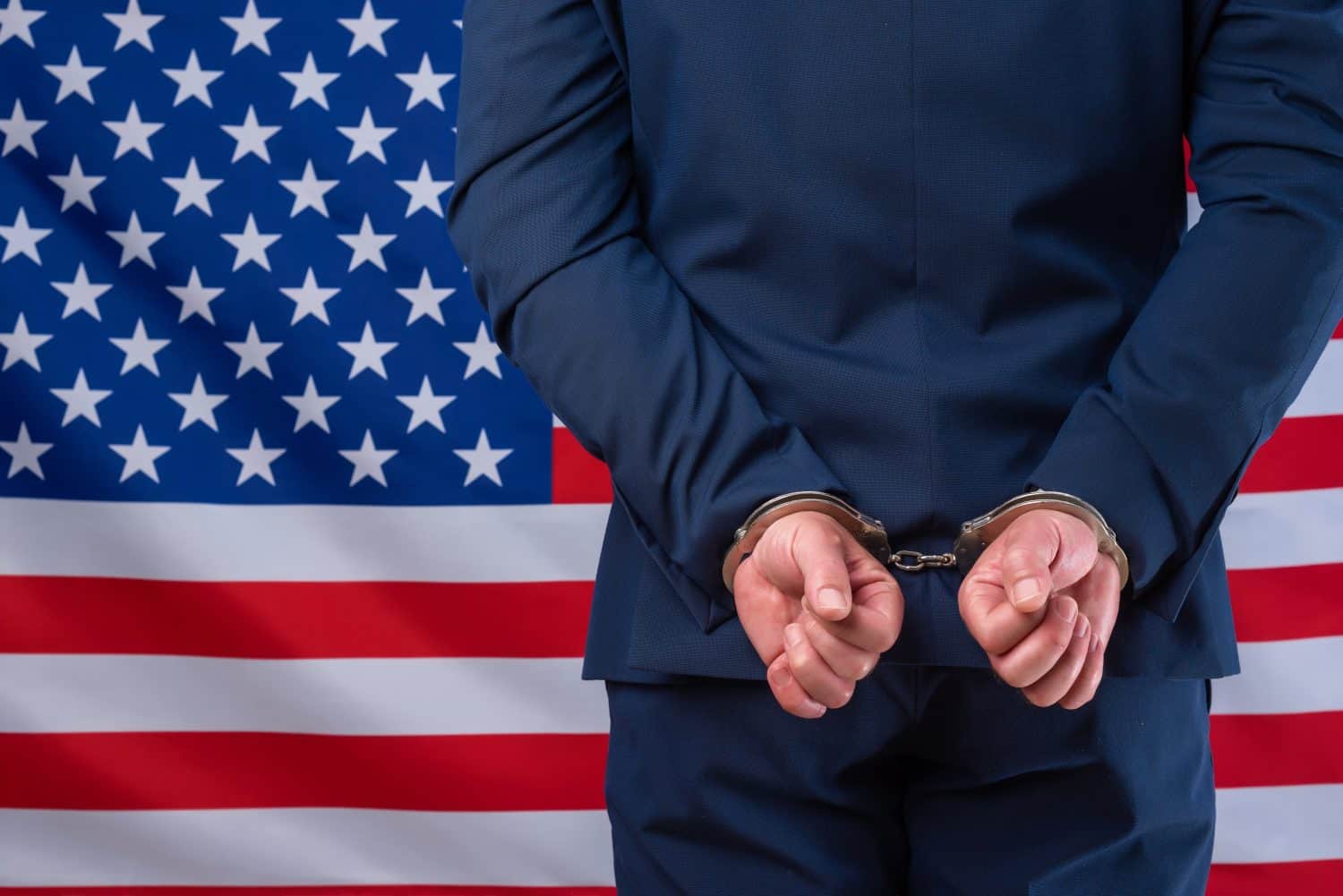
24/7 Wall St. Insights
- Ulysses S. Grant was an American hero coming out of the Civil War.
- His administration was corrupted across various cabinet departments.
- Grant has ultimately been remembered as the most corrupt president of all time.
- Also: Discover “the Next NVIDIA”
For many people, Ulysses S. Grant is viewed as one of the most accomplished and heroic officers who rose to glory during the Civil War. He’s widely credited with the Union Victory in 1865, which kept the United States together. A West Point Military Academy graduate, Grant could ride the coattails of his military success straight into the Oval Office. However, despite Grant’s successes as president, including a post-war economy, Congressional Reconstruction, and the 15th Amendment, his presidency was marred by scandal.
15. Elected to Office
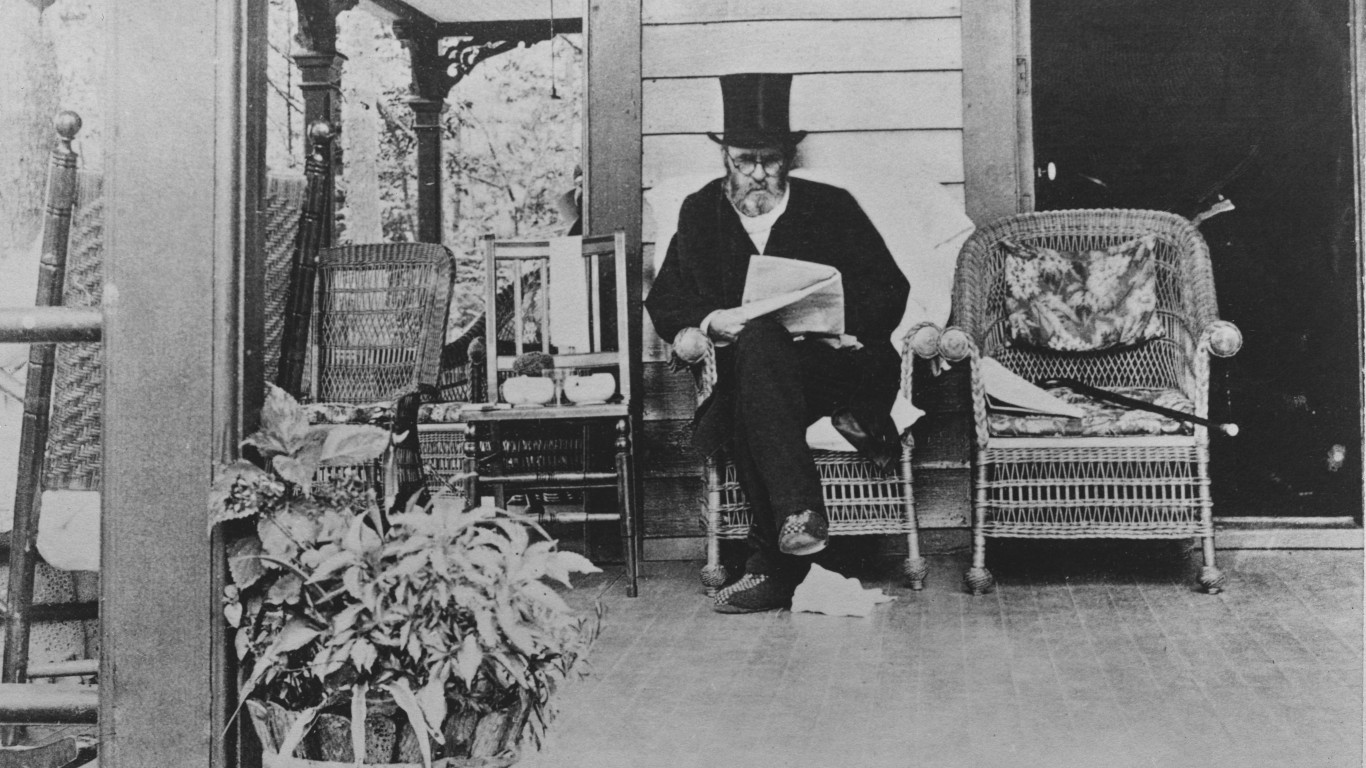
When Grant was elected to office and sworn in on March 4, 1869, it was done on the back of his heroics coming out of the war. Although he had almost zero political experience, his accomplishments during the war made him a smart candidate for the Republican Party to put forth and stabilize a broken nation.
14. No Political Experience
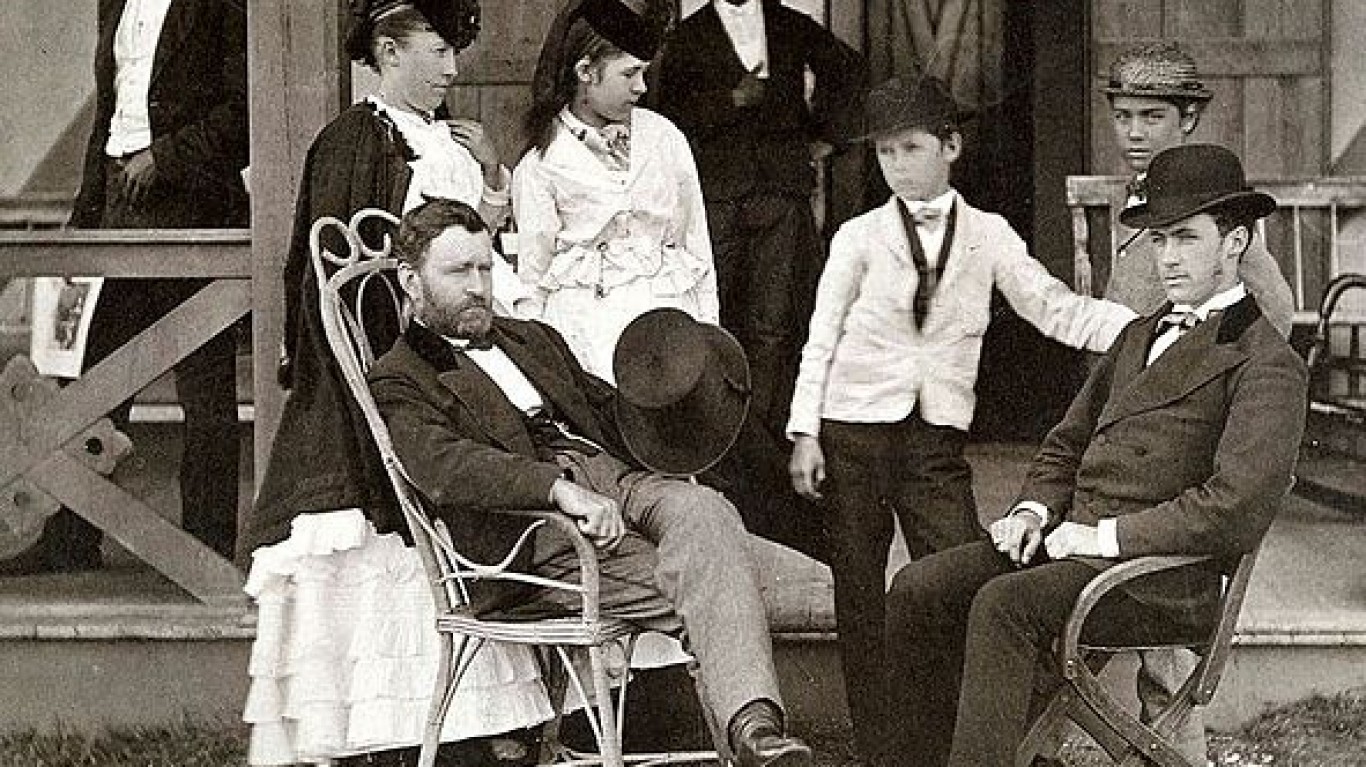
If you look at Grant, he needed more political experience, not less. Grant didn’t understand the inner workings of Washington, which, even 100-plus years later, haven’t changed all that much. Grant was used to giving orders and having them followed.
13. Grant’s Leadership Style

Remembering that Grant came into office as a successful military leader is critical. He was used to delegating to subordinates under his command who would follow his orders to the letter. He assumed this same level of trust would work in the office of the presidency. Unfortunately, this also resulted in Grant appointing friends and trusted colleagues to essential government roles.
12. Overshadowing His Achievements
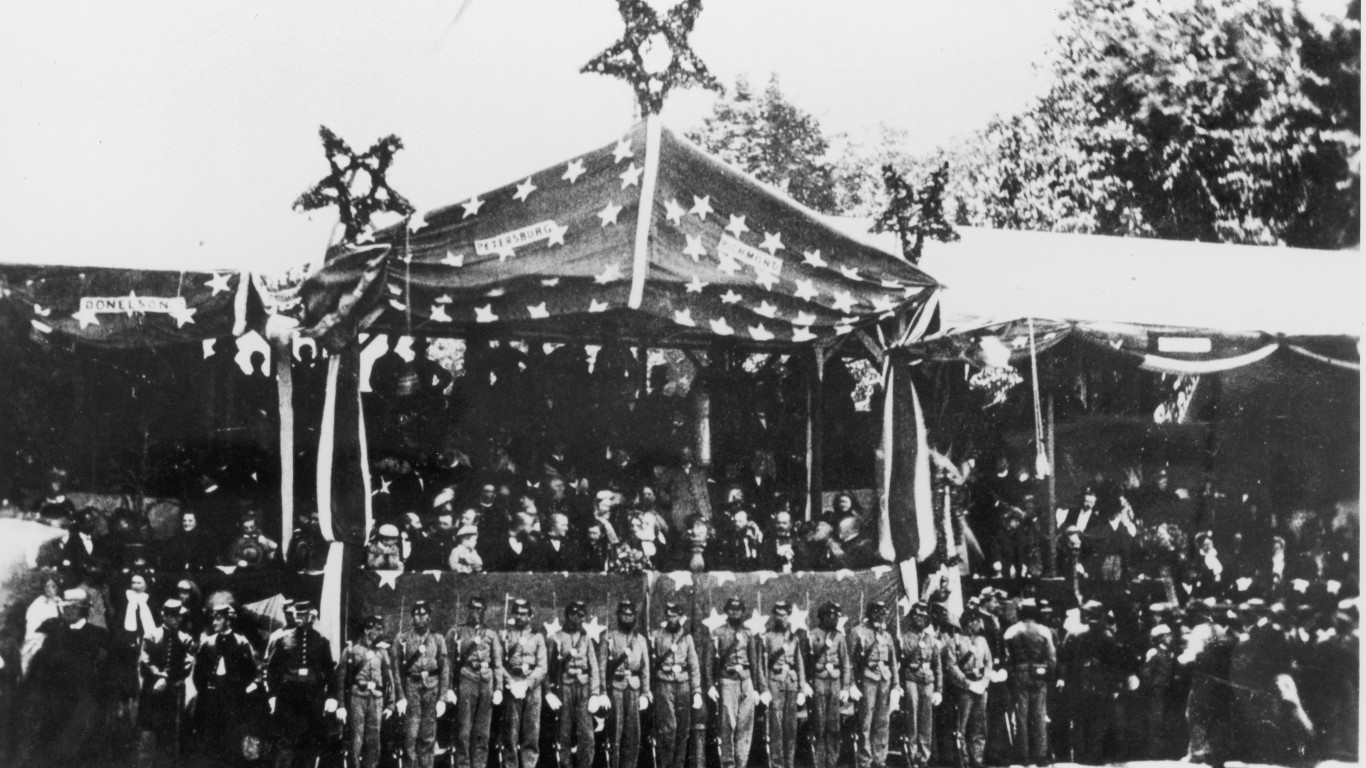
When Grant took over from President Andrew Johnson, he immediately began Reconstruction efforts for the South and quickly introduced support for granting full citizenship rights to former slaves.
11. No Personal Benefits
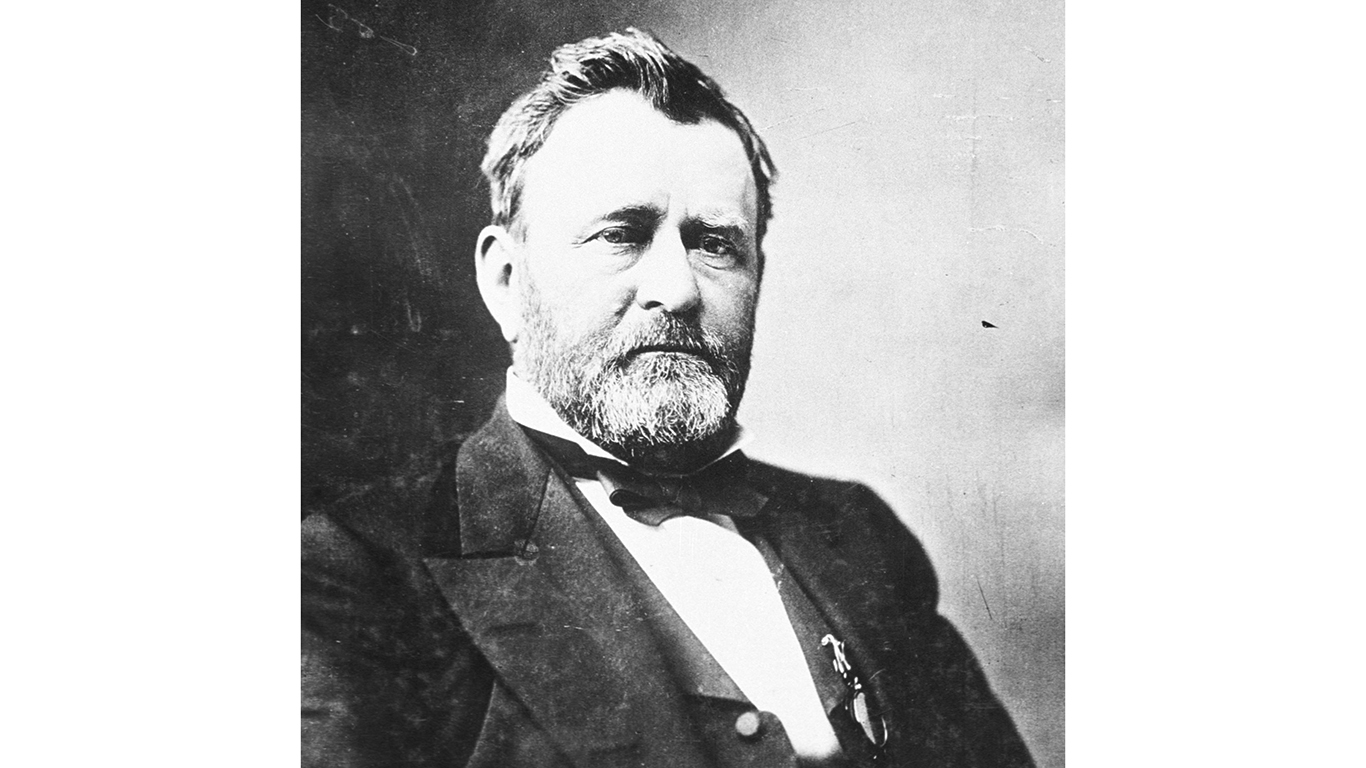
While Grant’s administration may be a prime example of “the buck stops with me” as far as his being president, history has shown that Grant didn’t benefit personally from any of these scandals. The bill signing that gave Grant a salary bump was only done to keep the government funded.
10. Black Friday Gold Corner
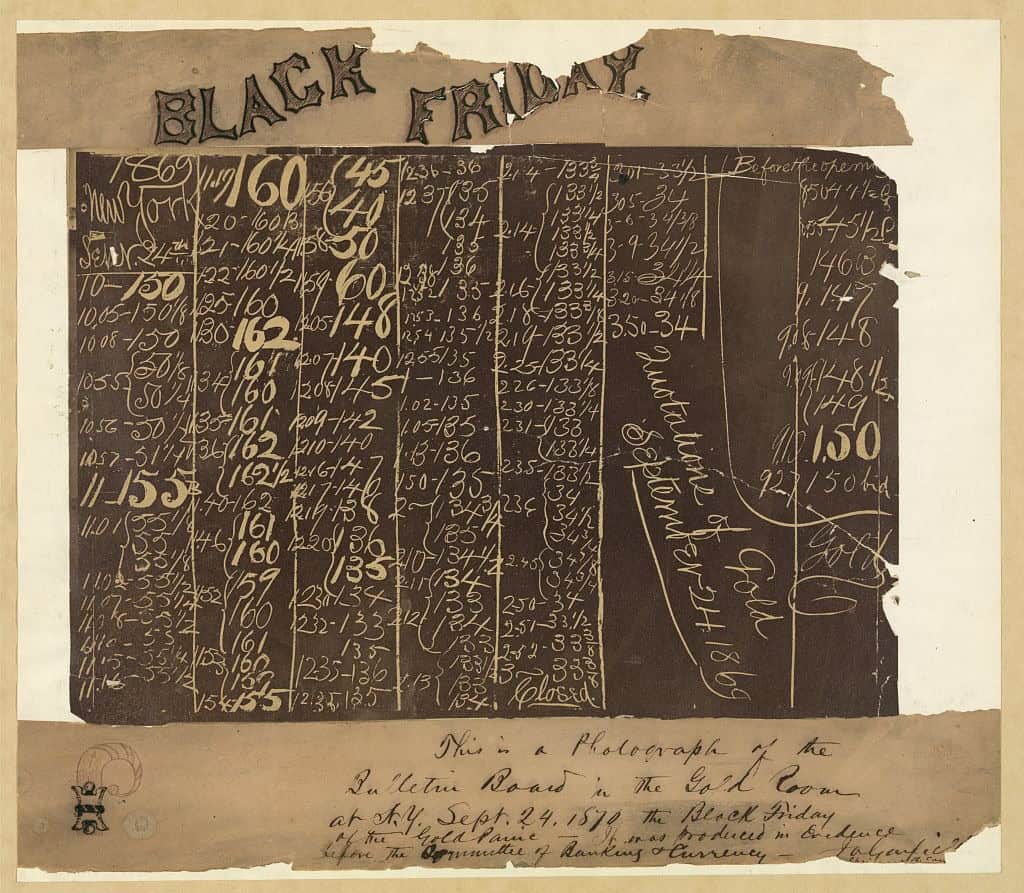
The first scandal Grant had to deal with in the office was the Gold Corner Conspiracy. Directly involving Grant’s brother-in-law, the scandal also included financiers Jay Gould and James Fisk, who attempted to manipulate the gold market by convincing Grant not to sell government gold. When Grant finally authorized selling, the market crashed, leading to more than $50 million in losses.
9. Credit Mobilier

In 1872, news of the Credit Mobilier scandal broke, and although the scandal preceded Grant’s administration, it tainted his reputation. It involved Union Pacific Railroad and included widespread bribery to prevent oversight of the railroad company’s business, leading to multiple political resignations.
8. Indian Ring Corruption
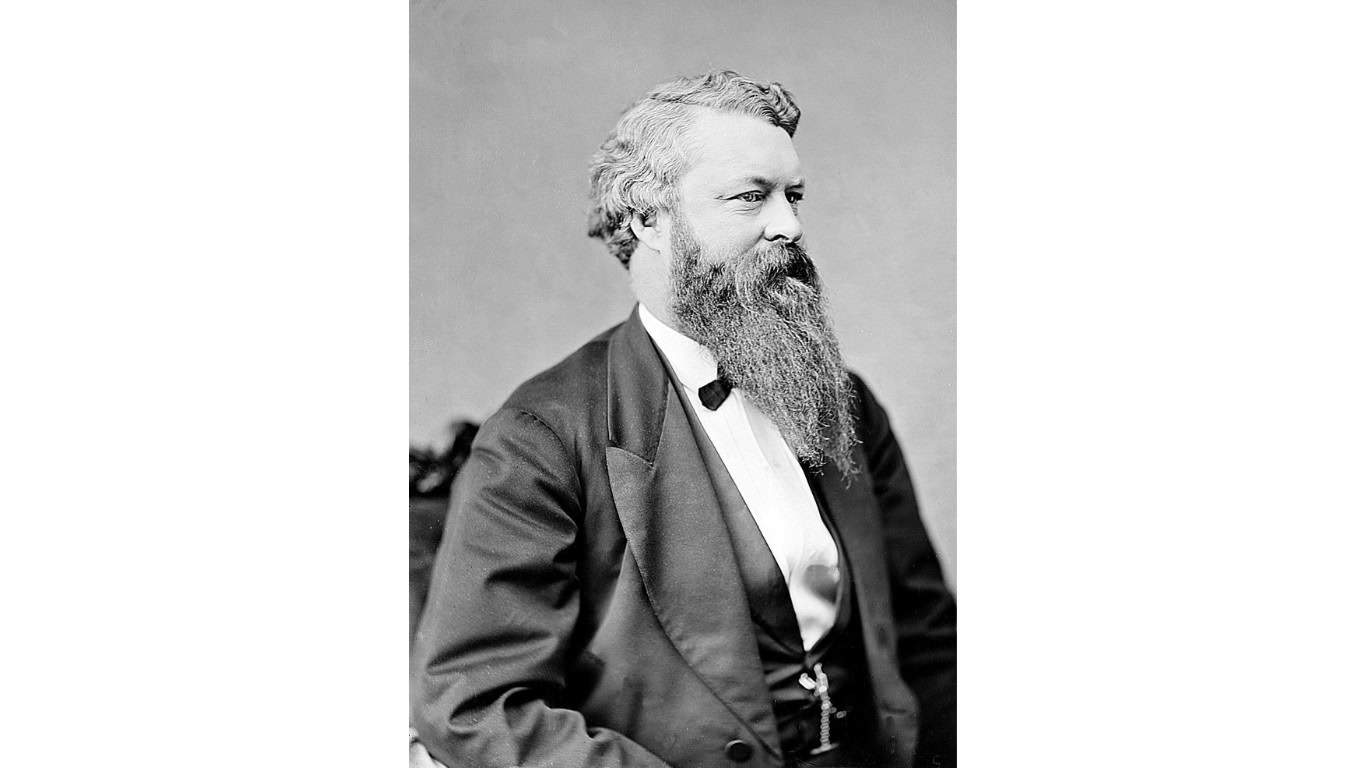
During Grant’s presidency, his Secretary of War, William Belknap, was accused of taking kickbacks and providing lucrative contracts to supply army posts built in Indian territory. While Belknap was eventually forced to resign, his impeachment by the US Senate was a distracting scandal for Grant.
7. Whiskey Ring
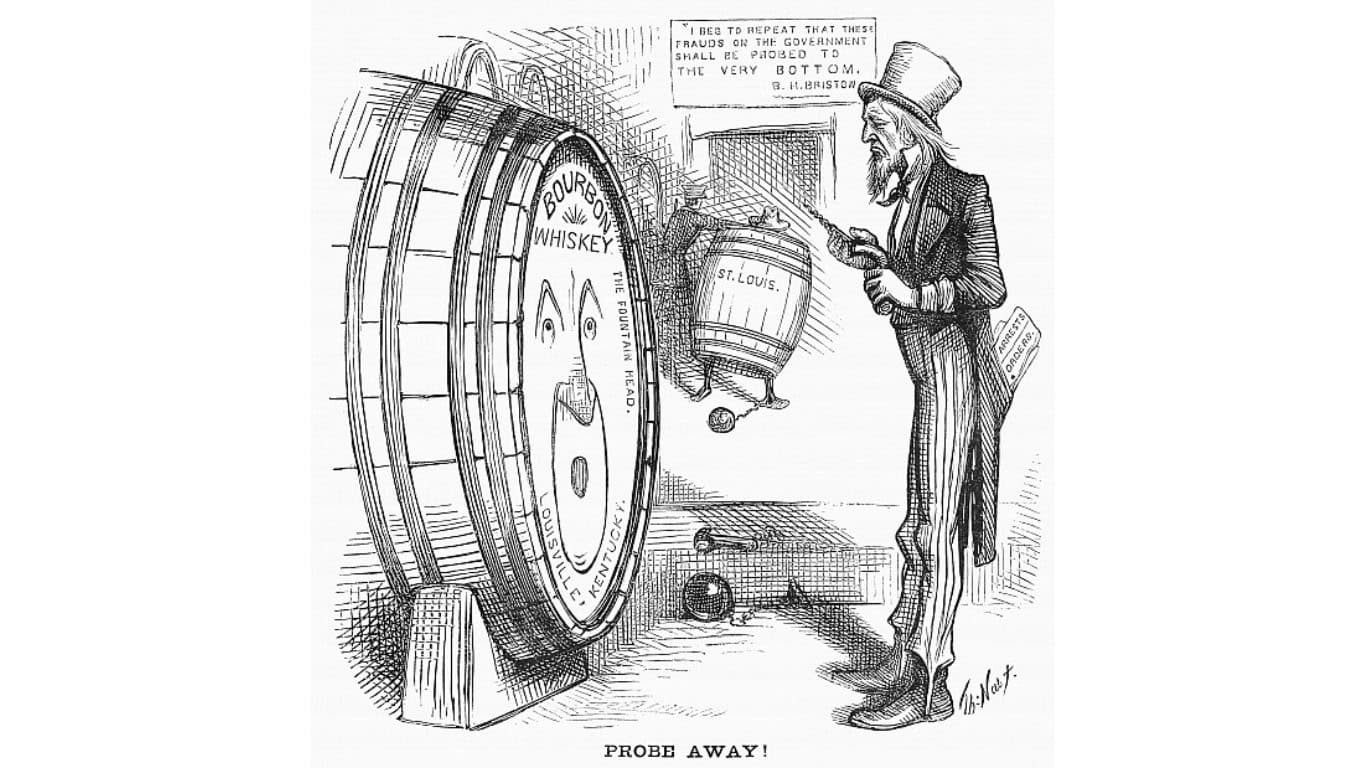
The Whiskey Ring scandal, which involved Grant’s Treasury Department, occurred between 1871 and 1876, with most of the action taking place in St. Louis. The scandal included avoiding tax payments and paying bribes to multiple US Department of Treasury members to evade taxes and increase profits. Grant’s Secretary of Treasury also uncovered the scandal, which is remembered as the most famous of the Grant White House.
6. Salary Grab
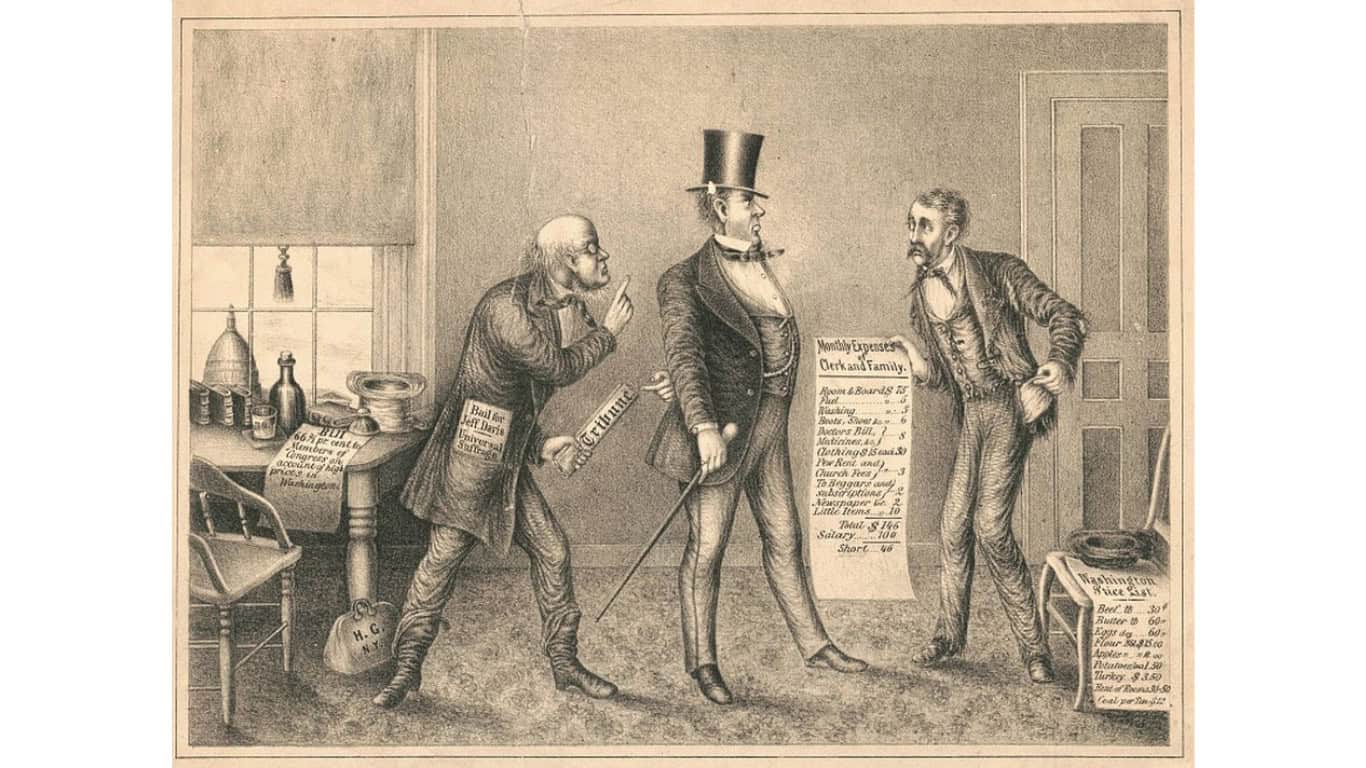
On March 3, 1873, President Grant signed a law that increased his salary to $50,000 per year from $25,000. In addition, it raised Congressional wages from $5,000 to $7,500. The scandal surrounded a secret clause that gave members of Congress an additional $5,000 in bonus payouts for the previous two years of their terms. The law was repealed when the bonus was exposed, even though Grant had signed it as it was stuck inside a general appropriations bill.
5. Department of Interior
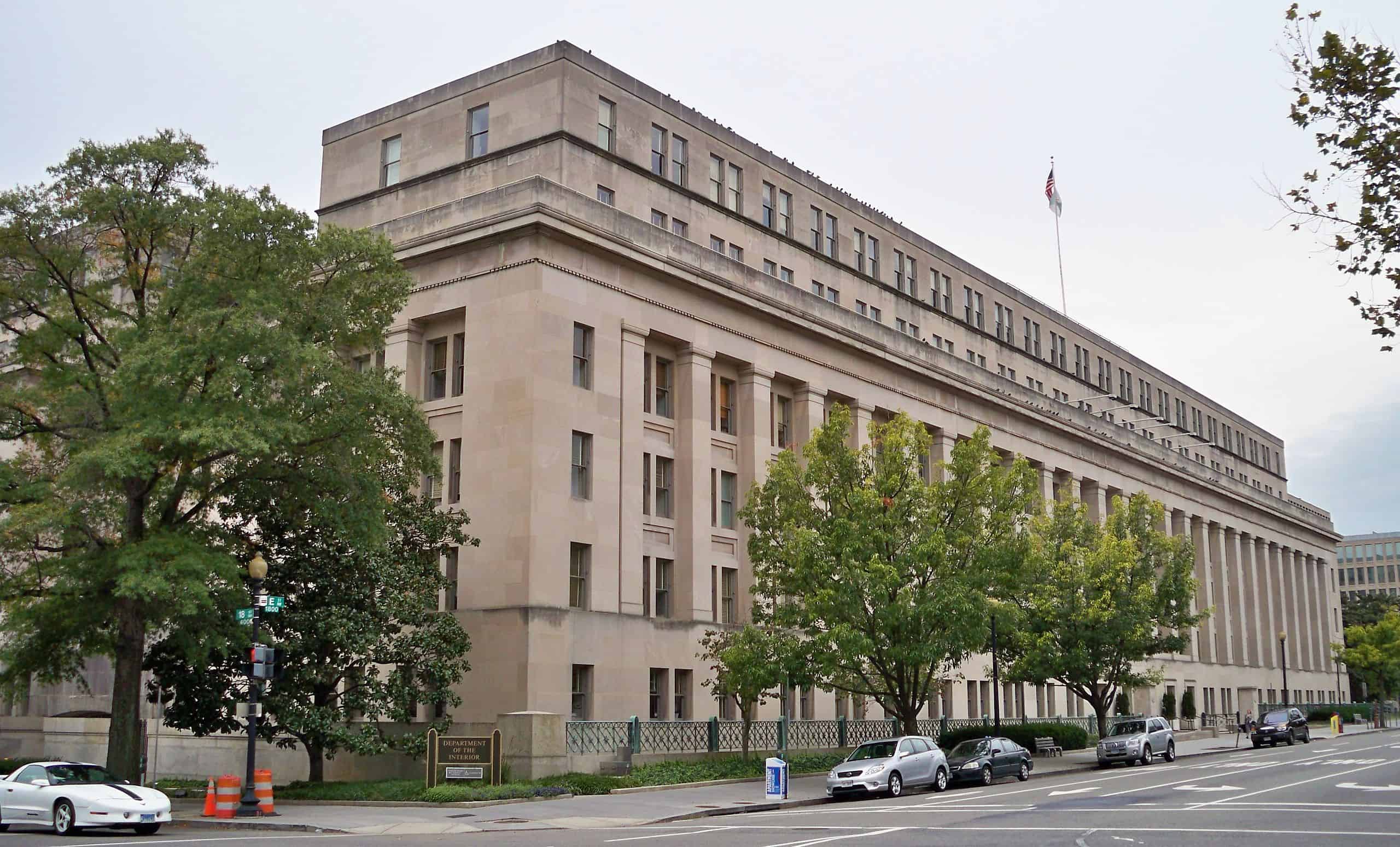
One of the more benign scandals during Grant’s administration happened with the Department of Interior. The door was opened by appointing Interior Secretary Columbus Delano, who looked at massive profiteering work in this area. This included Grant’s brother, Orvil Grant, being awarded a lucrative cartographical contract he had no qualifications to accomplish.
4. Department of Justice
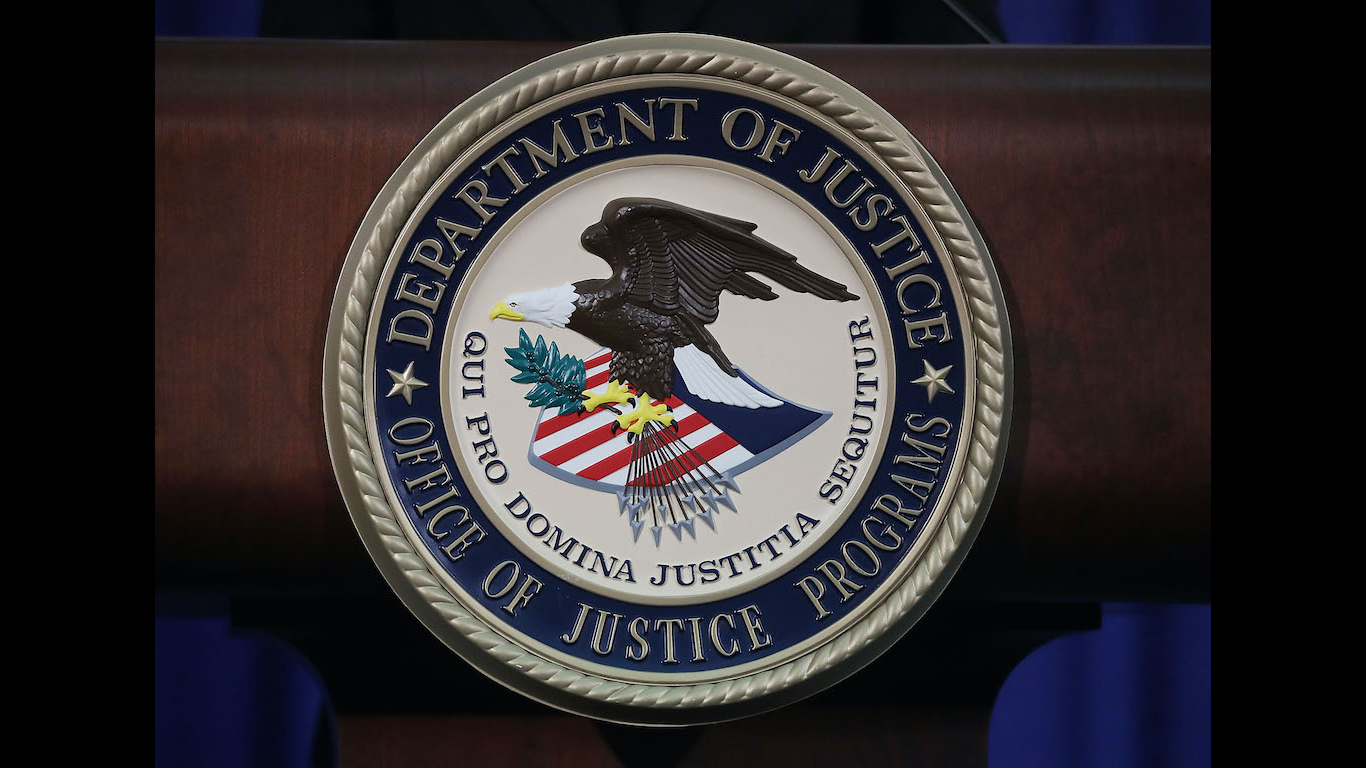
It’s well known that Attorney General George H. Williams approached his justice department loosely. Williams was taking bribes in exchange for declining to prosecute cases, including one against merchant house Pratt & Boyd. When the Senate discovered Williams had accepted $30,000 to drop the case, Grant called for and received Williams’ resignation.
3. The Currency Question
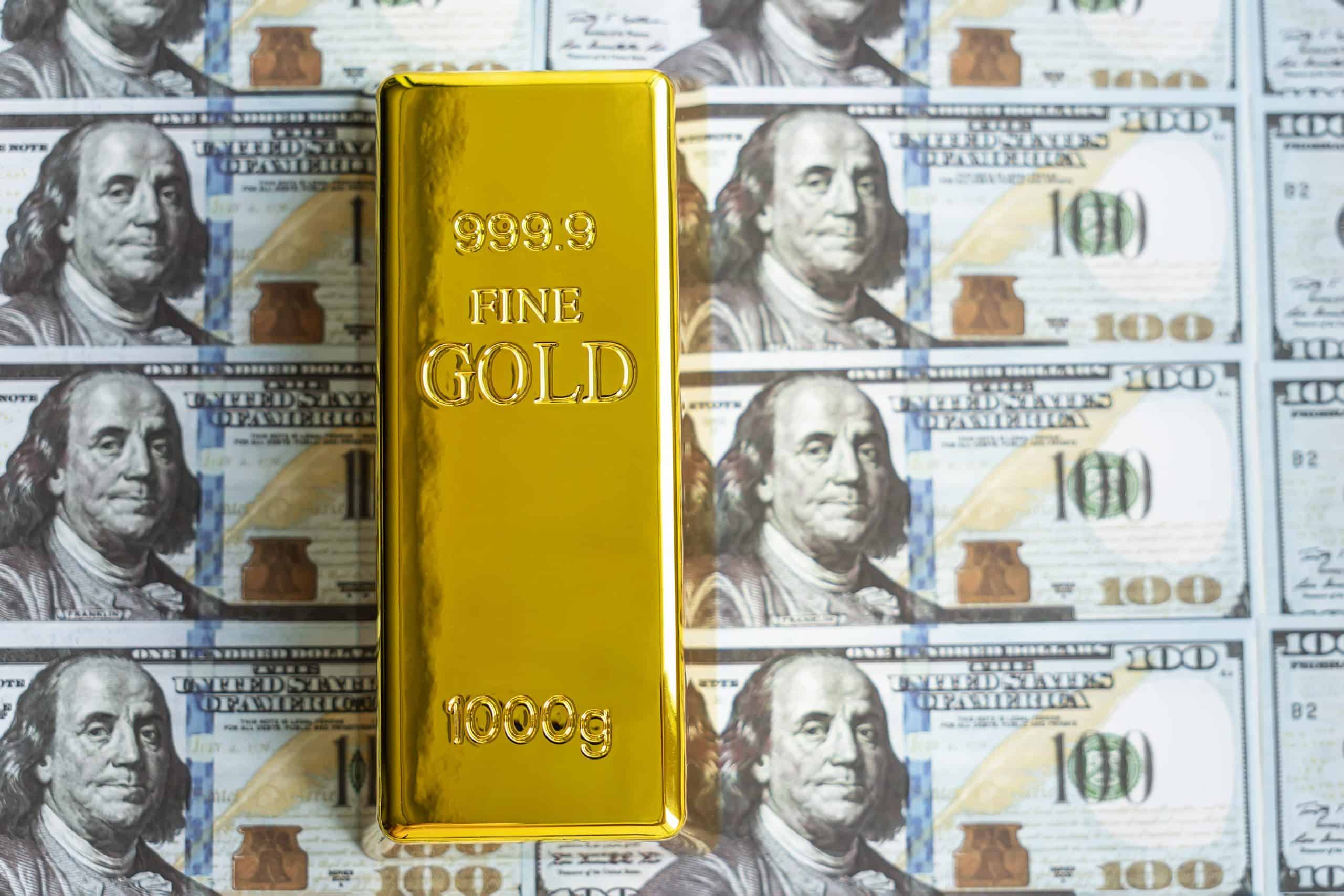
One of Grant’s biggest mistakes was his economic policy and lack of understanding in this area. Grant needed help backing up the US currency during his time in office. Whether gold or paper money should be the standard for ensuring the dollar’s value, the decision to return to the gold standard and the 1869 Public Credit Act led to inflation and the Black Friday Gold scandal.
2. Pendelton Civil Service Reform Act
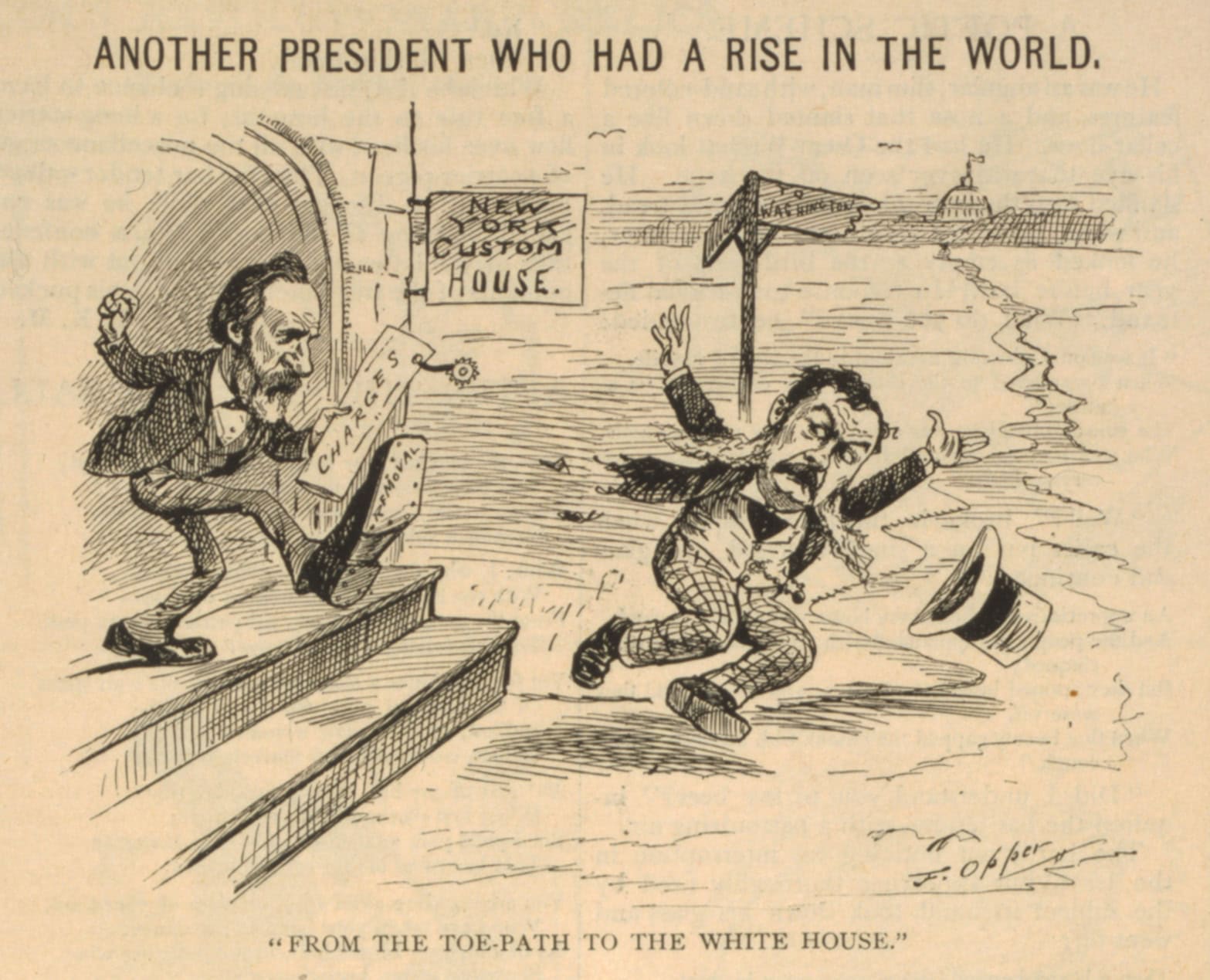
The Pendleton Civil Service Reform Act was signed due to the scandals Grant oversaw while in office. Unfortunately for Grant, who appointed people he knew and believed he could trust to high-level government roles, it backfired. This act ensured that positions within the federal government should be handed to individuals based on merit and not political patronage.
1. Leaving Office In 1876
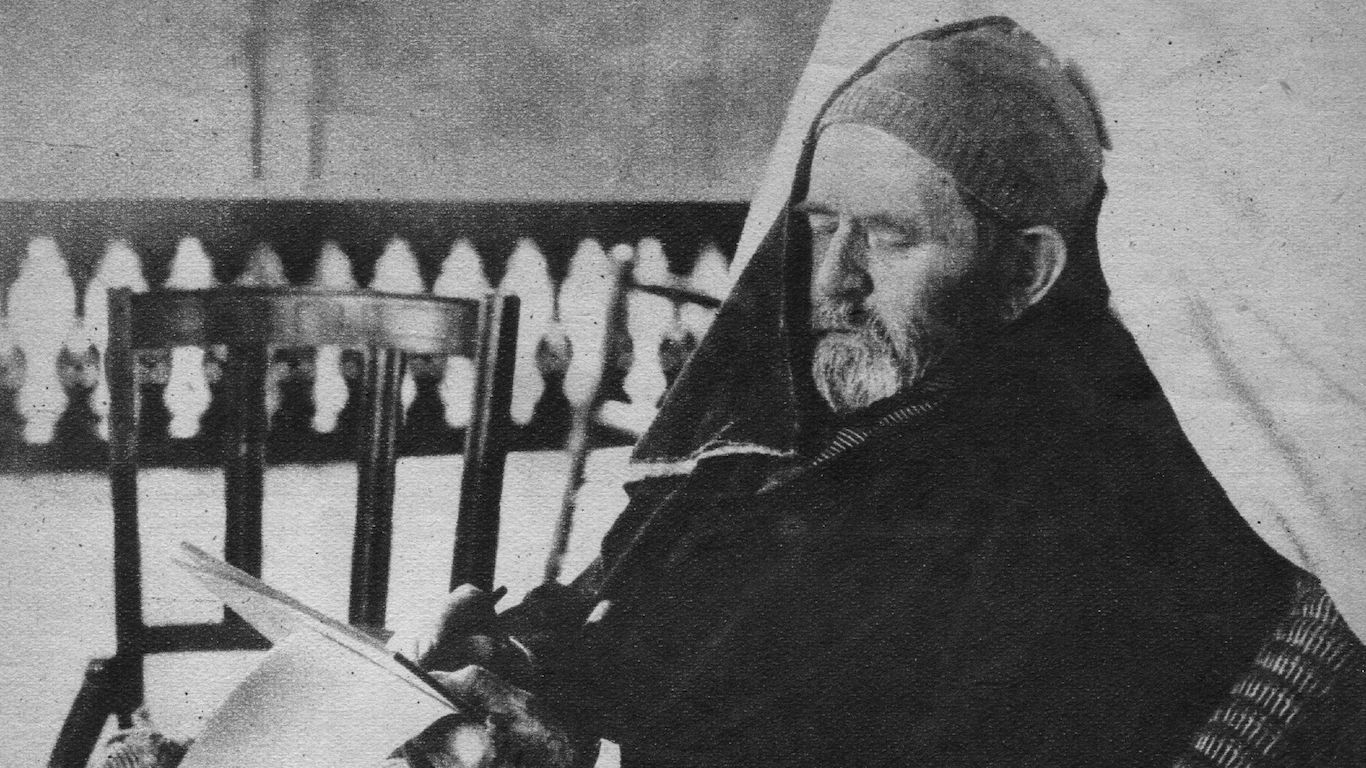
When Grant left office after his second term expired in 1876, he was not unaware of how history might judge his time in office. In his final message to Congress, Grant said, “Mistakes have been made, as all can see, and I admit.” It would take just two years before the first paper, the New York Sun, called Grant “the most corrupt President who ever sat in the chair of Washington.”
Thank you for reading! Have some feedback for us?
Contact the 24/7 Wall St. editorial team.
